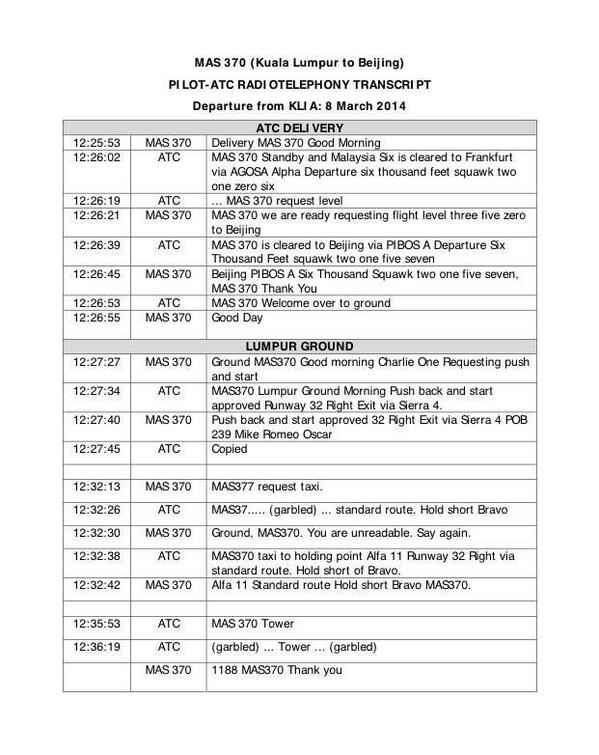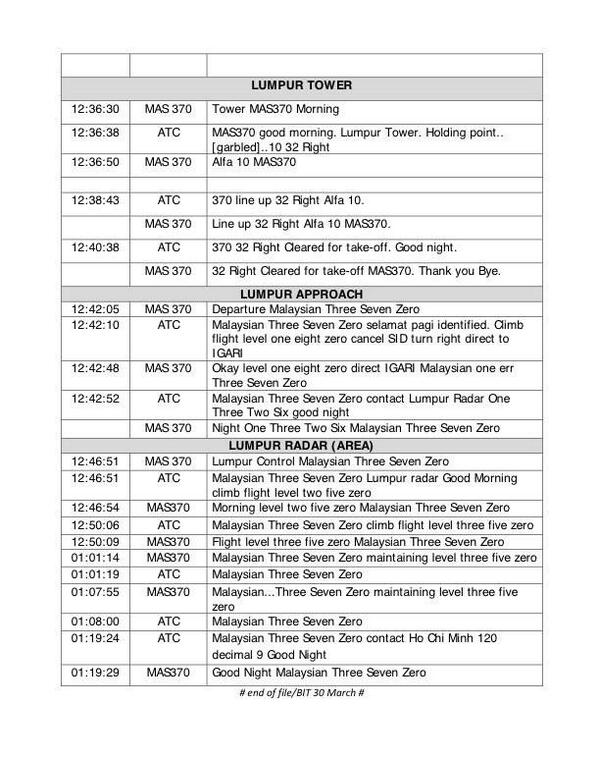The release of the transcript, which shows that nothing unusual was said, came after authorities earlier released a statement saying the final words received by ground controllers at 1:19 a.m. on March 8 from the cockpit of Flight MH370 were "Good night Malaysian three-seven-zero." Previously, the government said the final words were "All right, good night."
The statement didn't explain the discrepancy. The statement also said investigators were still trying to determine whether the pilot or co-pilot spoke the words.
"In this particular case, the last known position was a long, long way from where the aircraft appears to have gone," he said. "It's very complex, it's very demanding."
"What we really need now is to find debris, wreckage from the aircraft," he said. "This could drag on for a long time."
Houston heads the joint agency coordinating the multinational search effort for the Boeing 777, which vanished on March 8 with 239 people on board bound for Beijing from Kuala Lumpur.
Malaysia has been criticized for its handling of the search, particularly its communications to the media and families of the passengers. The changed account of the final voice transmission from the cockpit is likely to fuel those concerns.
Details of what happened to the flight are locked in the so-called black boxes that, along with the plane, its passengers or any of its contents, have yet to be recovered.
The U.S. Navy has provided a black-box detector and an underwater vehicle that could be used to verify the box's location, but searchers are racing the clock. Black box batteries are only designed to last 30 days or so. It will take several days for the detector to be shipped into the search zone — and far longer to actually locate the boxes given the massive area involved.
Contributing: John Bacon from McLean, Va.; William M. Welch from Los Angeles; Associated Press






No comments:
Post a Comment